About Cognitive Behavioral Therapy (CBT)
Cognitive-behavioral therapy (CBT) is a form of talk therapy for people experiencing gambling problems. There are several goals of CBT, including increasing peoples’ awareness of how their thoughts, feelings, behaviors, and situational contexts influence their gambling, developing new ways of thinking about gambling, engaging in alternatives to gambling that are consistent with peoples’ values, and increasing peoples’ confidence in controlling their gambling. Our research shows that people experiencing gambling problems had more accurate beliefs about gambling, engaged in healthier alternatives to gambling, and reported more confidence in controlling their gambling than people experiencing gambling problems who did not participate in therapy (Free et al., 2024).
How CBT Works

It is completely normal for people to wonder what exactly it will look like to participate in CBT. As a person participating in CBT, it is important for you to take an active role in therapy and engage in the various activities to the fullest. It is also important for your therapist to take an active role in listening to your concerns and collaborate with you to develop the best course of action. If these assumptions are met, CBT will involve a combination of different activities:
1. Enhance your motivation
Your therapist should work with you to identify the reasons that you want to make a change in your gambling. These reasons are different for every person, but the most common reasons are because people want to improve their financial situations or relationships (Suurvali et al., 2012). Once these reasons are identified, therapists should work with you to explore any hesitations about change; after all, changing a behavior like gambling is not easy and maybe even uncomfortable.

2. Set goals
One of the most important steps for changing any behavior (including gambling) involves setting a clear goal. In the context of gambling, people commonly make one of two goals in CBT. One goal is to abstain from gambling completely. The other goal is to limit gambling in some way, such as the amount of money they will gamble or the number of days they will gamble. The selected goal will be different for every person, but it is important that the goal is specific, measurable, achievable, relevant, and anchored in time. Regardless of the goal, research supports that people experience less significant gambling harm at the end of CBT (Ladouceur et al., 2009).
3. Feedback
A common element to CBT is providing you with data-driven feedback about your gambling behavior in the months leading up to therapy. Feedback often requires people to retrieve bills, credit card statements, and/or bank statements to report the number of times they gambled and how much money they gambled over a period of several months. Many people worry about the usefulness of this activity and that it will be uncomfortable to look back on their gambling. However, our research shows that feedback about gambling (even in absence of other activities described here) will help people reduce their gambling behavior (Peter et al., 2019).
4. Changing your environment
Changing your environment is a common activity in CBT for gambling, but what this activity looks like will depend greatly on your situation. Most people think of this activity as controlling “people, places, and things.” For example, you may minimize or avoid interactions with people who gamble, you might voluntarily ban yourself from gambling apps on your phone or the local casino, or you could allow a trusted loved one to temporarily control your finances. Not all these changes to your environment may be relevant to you or even feasible to change in your life, but what matters is that a therapist helps you to identify the changes that are best for you.
5. Changing how you think about gambling
While participating in CBT, people often begin to change how they think about gambling. Gambling is inherently risky because it involves taking chances on events with random and independent outcomes. However, many people experiencing gambling problems begin to believe that they can control the outcomes of gambling games or possess gambling skill (Goodie & Fortune, 2013). Examples of these beliefs include “I am one win away from hitting it big” or “I can win my money back if I keep playing.” CBT helps you recognize that this thinking is not entirely accurate and helps you reframe to more accurate beliefs such as “Gambling is supposed to be a fun activity and not an alternative income source.”
6. Engaging in values-based alternatives
As people begin to change their gambling, many of them soon notice that they have more time on their hands. Engaging in alternatives to gambling becomes important to fill that new time. However, engaging in alternatives to gambling does not mean that you should simply do anything else like clean the house or watch television. These alternatives are OK occasionally, but your therapist will encourage you to develop meaningful alternatives that help you lead a meaningful life. For example, if the most important reason for you to change is to become a better significant other, then you will be expected to generate alternatives consistent you’re your definition of becoming a better significant other.
7. Future planning
At some point in time, many people participating in CBT begin to feel more confident that they can control their gambling. This feeling is a good sign because CBT is intended to be a time limited therapy, and the hope is that the activities described above will translate to long lasting changes in your life. That said, future planning helps people reflect on the progress they have made during CBT and forecast any future challenges that could arise when therapy is finished. Some clients plan for worst case or novel scenarios that may arise after therapy, such as an unplanned work trip to Las Vegas or the opening of new casino in town. The hope is that you will develop effective plans for these situations before they happen. However, please note that therapists often encourage you to come back if you ever need a refresher or extra help; things happen and we cannot always plan for every future outcome.
Why CBT is Helpful for Gambling Addiction
CBT at The Gambling Clinic

The Gambling Clinic offers a safe, supportive place to get help with gambling. Here’s what makes our program special:
Therapists Who Care and Understand
Our therapists are trained to understand gambling issues, and they work with you to make sure you feel understood and supported.
Simple, Affordable Pricing
The fee for the entire CBT program is $300, and if that’s hard to afford, we have options to make sure you can still get help. We want everyone to get the support they need.
Flexible Appointments
We offer in-person appointments at our Memphis, Johnson City, or Nashville clinics and telehealth options so you can talk to your therapist from anywhere in Tennessee. This way, you can pick the option that’s best for you.
Get Started with Cognitive Behavioral Therapy
If you or someone you care about is struggling with gambling, CBT can be a helpful step toward lasting change. The Gambling Clinic is here to support you every step of the way.



